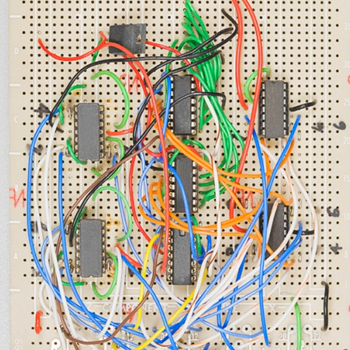An equilibrium mixture of 2 moles each of PCl_5, PCl_3 and Cl_2 in V ltrs. in T temp. has a total pressure of 3 atm. Cl_2 is added at the same temp. and pressure till the volume is doubled. What is the number of moles of Cl_2 added? Thank you:)
1 Answer
Explanation:
The chemical equation is
First, we have to find the equilibrium constant
Let
Adding
Let
At the new equilibrium point, amount of
Here you obtain two equations:
(1) Since the volume is doubled at the constant pressure and temparature, the total amount of substance must be doubled too.
(2) The equilibrium constant doesn't change since the temparature is the same .Though, the volume is now
Multiply equation (B) by
Substitute

